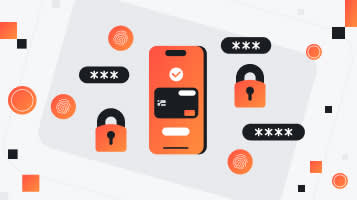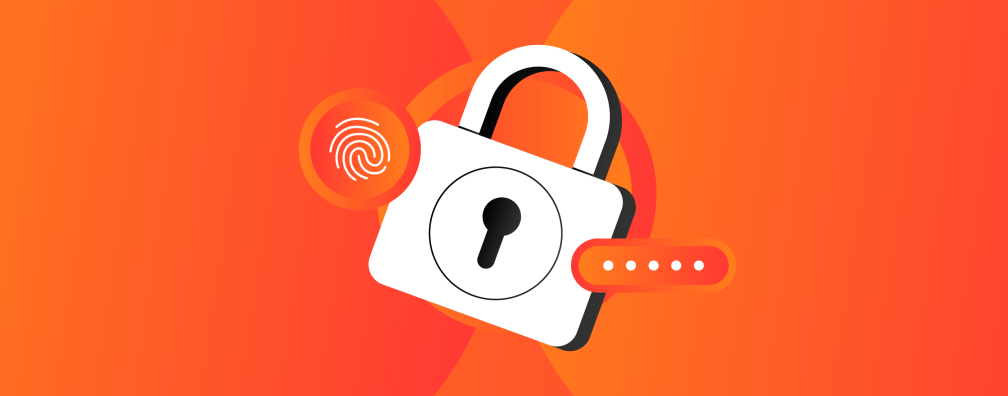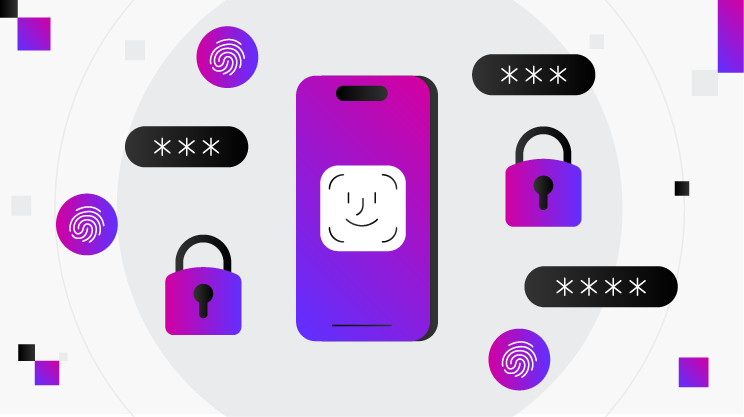How to build customer trust with robust payment security

Consumers expect businesses to protect their personal data, especially when it comes to their financial information. A security breach can irrevocably damage this trust, negatively impacting both your brand’s reputation and bottom line. A single breach can lead to financial loss, legal liabilities, and a tarnished brand image, which can take years to recover from. In fact, global customers are 56 percent less likely to use eCommerce payment services after experiencing a fraud-related incident.1
Find out how you can build customer trust, foster brand loyalty, and drive long-term global business growth by prioritising payment security.
The importance of payment security
Most businesses don't think about payment security until a breach happens. But without strong security measures, it can quickly become a deal-breaker, sending your potential customers elsewhere. That’s why payment security should be non-negotiable.
Ensuring your payment systems are secure does more than protect data against fraud – it also earns your customers' trust, helps you meet regulatory requirements, and safeguards your business' future.
While consumers may not always be aware of the payment security measures you have in place, having a strong reputation for keeping customer information safe is key to building trust. When customers know their financial information is secure, they feel more confident in buying from you, especially when the entire payment process happens within your platform. This trust can lead to repeated purchases, brand loyalty, and ultimately, long-term business growth.
Because payments involve personal information, it’s highly regulated. These regulatory requirements are designed to protect consumers, merchants, and financial institutions from fraud and data breaches, maintain financial stability, and ensure trust in the financial system. Regulations are standards for data protection, authentication, and transparency. Non-compliance can damage your brand reputation and be costly, hurting your business’ long-term success.
If you’re a global business, it’s important to note that apart from global standards, each country or region may have their own regulations. In Canada, for example, businesses must adhere to different regulations depending on their province. British Columbia and Alberta follow the Personal Information Protection Act (PIPA) while Quebec has its own distinct privacy law called the Quebec Privacy Act.
Stop fraud before it occurs. Integrated payment fraud detection.
What does robust payment security mean?
To keep your business and your customers' sensitive information safe, you need to choose a payment provider with robust security measures in place – but what does that mean? It means they offer comprehensive and reliable protection against a wide range of cyber threats.
When it comes to payment security, most payment providers will use the following:
Data encryption: Payment providers use strong encryption to protect sensitive data, such as credit card numbers and personal information, at rest (during storage) and in transit (during transmission). This means that the data can only be read with a specific key. So, even if bad actors gain access to the encrypted data, they won’t be able to decrypt it, read it, or use it.
Tokenization: Tokenization occurs when unique tokens are created to replace sensitive data (like credit card numbers) with a non-sensitive equivalent. When a customer’s payment information is tokenized, the original data is stored in a vault, and the unique token is used instead of the real data in transactions. This reduces the risk of data breaches because even if a cybercriminal gains access to the tokenized data, they can't directly use the token to make fraudulent purchases since the original card numbers remain inaccessible.
Compliance and regulations: All payment providers must follow the Payment Card Industry Data Security Standard (PCI DSS). Most businesses will also need to follow the General Data Protection Regulation (GDPR), which is meant to protect the personal data and privacy of citizens of the European Union (EU). While it’s universally applied to all businesses in the EU, it also applies to any business that handles the data of an EU resident.
Payment services must also follow Strong Customer Authentication (SCA), which forms part of the EU's Payment Services Directive 2 (PSD2) that mandates the use of two-factor authentication (a security method using two verification steps) to enhance security and reduce the risk of unauthorised access. This is important for any business that handles EU transactions.
On top of the common features above, at Airwallex, we have additional payment security measures that make us stand out from other providers. Here are some key differentiators:
Fraud protection
We take a multi-layer security approach to protect transactions. On top of encryption and tokenization, we employ fraud detection systems. For example, our machine learning and artificial intelligence technologies analyse transaction patterns to identify unusual behaviour and protect against fraud.
Global compliance
Since Airwallex’s foundation was built to support global businesses, we’re well-versed in local compliance and regulations that govern payment acceptance, beyond GDPR, PCI DSS, and SCA. We have 60+ licences and permits across the world from financial bodies such as the Financial Conduct Authority (FCA) in the UK, the Australian Securities and Investments Commission (ASIC), the Hong Kong Customs and Excise Department, and the Financial Crimes Enforcement Network (FinCEN) in the US.
By partnering with us, you can leverage our expertise and securely handle global payments without having to navigate compliance and regulations on your own.
Ongoing research and development
We’re continuously investing resources into research and development to stay safe, enhance our security solutions, and proactively protect against new threats. Our global fraud and security teams operate 24/7, 365 days a year, staying up-to-date with the latest developments in cyber security and data protection.
How to build customer trust in your payment acceptance
When customers feel secure, they're more likely to make higher-value purchases, return for repeat business, and recommend your brand to others. This not only boosts your bottom line but also improves customer lifetime value.
Here’s how you can cultivate customer trust:
1. Prioritise security
A strong, secure payment solution is the foundation for building customer trust. Prioritising payment security not only protects customers from fraud, but also elevates their overall shopping experience. When customers feel confident that their financial information is safe, they’re more likely to complete transactions. This sense of security builds loyalty, encouraging customers to return for future purchases and recommend your brand to others.
2. Build trust at checkout
As your global customers are more likely to checkout with methods they’re familiar with, supporting multiple payment methods, like credit cards, debit cards, digital wallets, and other local payment options (e.g. Venmo in the US or PayNow in Singapore) is important. To reassure customers that their payment information is protected at checkout, display security badges for the payment methods you accept, like Verified by Visa or Mastercard SecureCode.
You can also improve customer trust with immediate order confirmations following successful payment processing. Sending a receipt that outlines all charges, shipping information, and the payment method used can further bolster customer confidence.
3. Provide efficient customer support
Customer service that’s responsive and helpful is essential for resolving payment issues quickly and reassuring customers. Displaying clear and easy-to-understand refund and return policies on your website also sets customer expectations up-front and provides peace of mind. Proactive communication about any potential delays or issues with orders can reduce frustration as the customer is being kept in the loop throughout the process.
4. Work with an experienced payment processing provider
Partnering with a trusted payment processing provider can significantly enhance security. Payment service providers specialise in providing a secure environment, and your business can leverage the provider's expertise in payments and knowledge of compliance and local regulations.
Safeguard your customer’s payment data
Payment security isn't just crucial for protecting against fraud or maintaining compliance – it's strategically important. By prioritising security and choosing a payment processing partner that shares your commitment to keeping sensitive customer data safe, you can enhance your brand reputation, foster customer loyalty, and unlock new opportunities for growth.
With Airwallex’s global payment solutions, you can significantly improve the security of your payment system, stay up-to-date with compliance and regulations, foster customer trust, and drive online sales.
On top of robust payment security, Airwallex’s Payments solution offers extensive geographical coverage, supporting 160+ local payment methods in 180+ countries. Our solution also facilitates like-for-like settlements in multiple currencies, which helps protect your margins no matter where you do business in the world.
Grow and protect your global revenue.
Sources:
1. https://trust.telesign.com/rs/592-GWW-584/images/Report-TelesignTrustIndex-en-6.pdf?version=0
Share

Channing Lovett is a fintech writer at Airwallex, where she leverages her diverse background in communication, tech, and financial SaaS to create insightful content. Channing’s expertise lies in simplifying complex concepts, helping readers to navigate the intricacies of their end-to-end financial operations with confidence. Her writing explores topics such as digital payments, cross-border transactions, and embedded finance, among others.
View this article in another region:AustraliaNew ZealandSingaporeUnited KingdomUnited States
Related Posts

What is 3D Secure authentication?
•5 minutes

